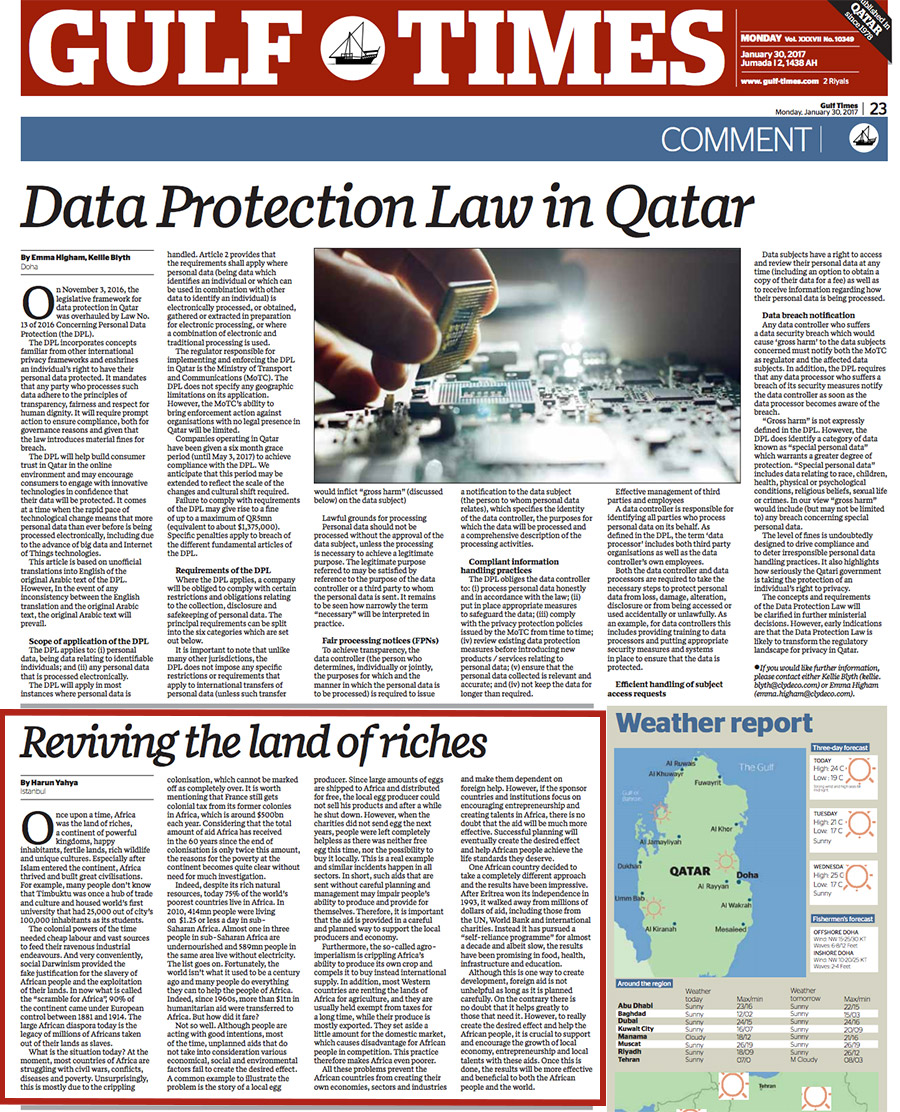
Once upon a time, Africa was the land of riches, a continent of powerful kingdoms, happy inhabitants, fertile lands, rich wildlife and unique cultures. Especially after Islam entered the continent, Africa thrived and built great civilizations. For example many people don't know that Timbuktu was once a hub of trade and culture and housed world’s first university that had 25,000 out of city’s 100,000 inhabitants as its students.
The colonial powers of the time needed cheap labor and vast sources to feed their ravenous industrial endeavors. And very conveniently, social Darwinism provided the fake justification for the slavery of African people and the exploitation of their lands. In now what is called the ‘scramble for Africa’, ninety percent of the continent came under European control between 1881 and 1914. The large African diaspora today is the legacy of millions of Africans taken out of their lands as slaves.
What is the situation today? At the moment, most countries of Africa are struggling with civil wars, conflicts, diseases and notoriously poverty. Unsurprisingly, this is mostly due to the crippling colonization, which cannot be marked off as completely over. It is worth mentioning that France still gets colonial tax from its former colonies in Africa, which is around $500 billion each year.[i] Considering that the total amount of aid Africa has received in the 60 years since the end of colonization is only twice this amount, the reasons for the poverty at the continent becomes quite clear without need for much investigation.
Indeed, despite its rich natural resources, today 75% of the world’s poorest countries live in Africa. In 2010, 414 million people were living on $1.25 or less a day in sub-Saharan Africa. Almost one in three people in sub-Saharan Africa are undernourished and 589 million people in the same area live without electricity.[ii] The list goes on. Fortunately, the world isn’t what it used to be a century ago and many people do everything they can to help the people of Africa. Indeed, since 1960s, more than $1 trillion in humanitarian aid were transferred to Africa. But how did it fare?
Not so well. Although people are acting with good intentions, most of the time, unplanned aids that do not take into consideration various economical, social and environmental factors fail to create the desired effect. A common example to illustrate the problem is the story of a local egg producer. Since large amounts of eggs are shipped to Africa and distributed for free, the local egg producer could not sell his products and after a while he shut down. However, when the charities did not send egg the next years, people were left completely helpless as there was neither free egg this time, nor the possibility to buy it locally. This is a real example and similar incidents happen in all sectors. In short, such aids that are sent without careful planning and management may impair people’s ability to produce and provide for themselves. Therefore it is important that the aid is provided in a careful and planned way to support the local producers and economy.
Furthermore, the so-called agro-imperialism is crippling Africa’s ability to produce its own crop and compels it to buy instead international supply. In addition, most Western countries are renting the lands of Africa for agriculture, and they are usually held exempt from taxes for a long time, while their produce is mostly exported. They set aside a little amount for the domestic market, which causes disadvantage for African people in competition. This practice therefore makes Africa even poorer.
All these problems prevent the African countries from creating their own economies, sectors and industries and make them dependent on foreign help. However, if the sponsor countries and institutions focus on encouraging entrepreneurship and creating talents in Africa, there is no doubt that the aid will be much more effective. Successful planning will eventually create the desired effect and help African people achieve the life standards they deserve.
One African country decided to take a completely different approach and the results have been impressive. After Eritrea won its independence in 1993, it walked away from millions of dollars of aid, including those from the UN, World Bank and international charities. Instead it has pursued a “Self-Reliance program” for almost a decade and albeit slow, the results have been promising in food, health, infrastructure and education.[iii]
Although this is one way to create development, foreign aid is not unhelpful as long as it is planned carefully. On the contrary there is no doubt that it helps greatly to those that need it. However, to really create the desired effect and help the African people, it is crucial to support and encourage the growth of local economy, entrepreneurship and local talents with these aids. Once this is done, the results will be more effective and beneficial to both the African people and the world.
[i] http://www.globalresearch.ca/frances-colonial-tax-still-enforced-for-africa-bleeding-africa-and-feeding-france/5547512
[ii] http://borgenproject.org/10-quick-facts-about-poverty-in-africa/
[iii] https://www.tesfanews.net/ask-eritrean-president-why-foreign-aid-is-crippling-africa/
Adnan Oktar's piece in Gulf Times


